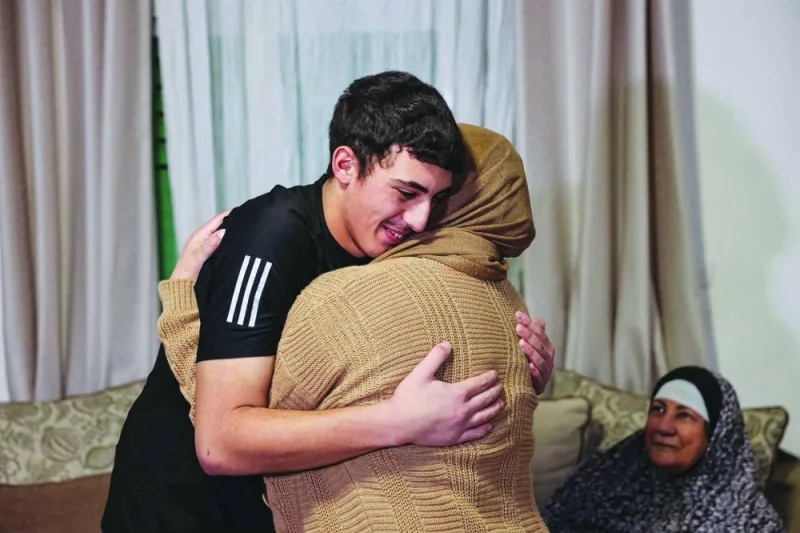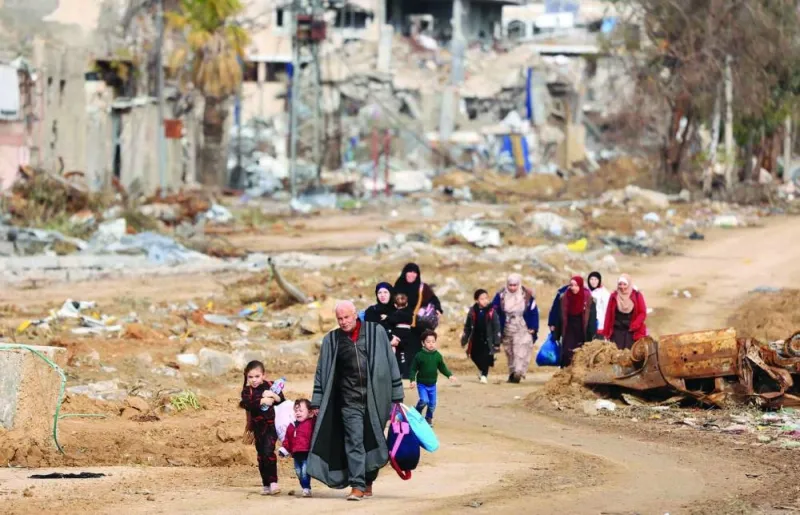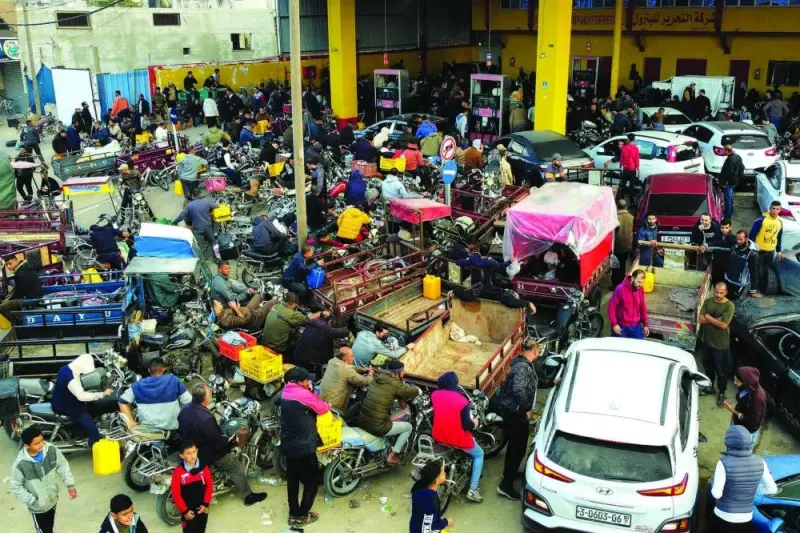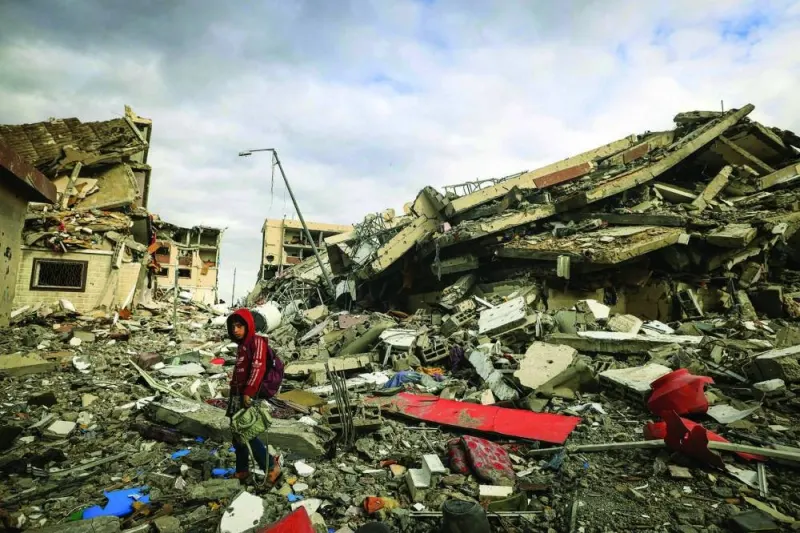AFP/GENEVA LAST EDITED NOVEMBER 29, 2023

Palestinian Mohamed Abu al-Humus, former prisoner released from the Israeli jail in exchange for hostages freed by Hamas in Gaza, hugs his mother upon return to his home in east Jerusalem, yesterday

Palestinians fleeing the north walk along the Salaheddine road in the Zeitoun district on the southern outskirts of Gaza City, yesterday.

Palestinians wait to fill their cars with fuel during a temporary truce between Hamas and Israel, in Khan Yunis, in the southern Gaza Strip, yesterday.

Palestinians inspect the destruction caused by Israeli strikes in Wadi Gaza, in the central Gaza Strip, yesterday.
The UN welcomed yesterday the increase in aid deliveries into Gaza afforded by a temporary truce but warned it was not enough to even start addressing the Palestinian territory’s massive needs.
UN children’s agency UNICEF said the aid flow to the northern Gaza Strip — the largest since the Israel-Hamas war erupted on October 7 — was “the right start”.
“(It’s) definitely the right type of aid — fuel, medicines, food, warmth,” spokesman James Elder told a press briefing in Geneva via video-link from Gaza.
But, he warned, the needs in the besieged enclave of more than 2mn are so huge that “all this aid is triage... It’s not even enough for triage.” When there are insufficient resources to treat everyone who needs it, hospitals and aid organisations are forced to triage — that is, to prioritise the most urgent cases, or those people most likely to survive, and leave the others.
“The aid needs to multiply... Everything here is emergency care right now,” Elder said.
Margaret Harris of the World Health Organisation agreed.
“The needs are massive. The amount of aid we’ve been able to get in is a trickle still,” the WHO spokeswoman told the briefing.
Their comments came as Israel and Palestinian fighter group Hamas embarked on a two-day extension to an initial four-day truce that has allowed Israeli hostages to be freed from Gaza in exchange for the release of Palestinian prisoners from Israeli jails.
The truce paused fighting that began when Hamas fighters poured over the border into Israel. Israel’s relentless retaliatory ground and air offensive in Gaza has killed almost 15,000 people, mostly civilians and many of them children, according to its Hamas-run government.
‘HEARTBREAKING’
The truce “has caused a moment of respite, critically to get aid in and also for people to take the heartbreaking task of looking for loved ones”, Elder said.
It was vital for the pause in fighting to be prolonged and turned into a permanent ceasefire, he said.
“It would be callous and cold to think we could turn around and start destroying homes and children and families’ lives again.” At the same time, “there is no way” to get things like desalination and sewage treatment plants on Gaza working properly again during just a temporary pause in fighting.
If the hostilities resume, “mass killing of children” will continue in Gaza, at a time when civilians there are even more vulnerable than before — many living outdoors in increasingly cold weather, malnourished, lacking clean water and with disease threatening, Elder said.
Allowing Israel’s bombardment of Gaza to resume, he said, “would be a dark stain on everyone’s conscience”.
No comments:
Post a Comment